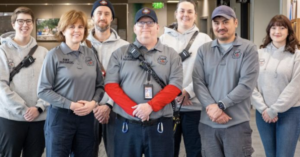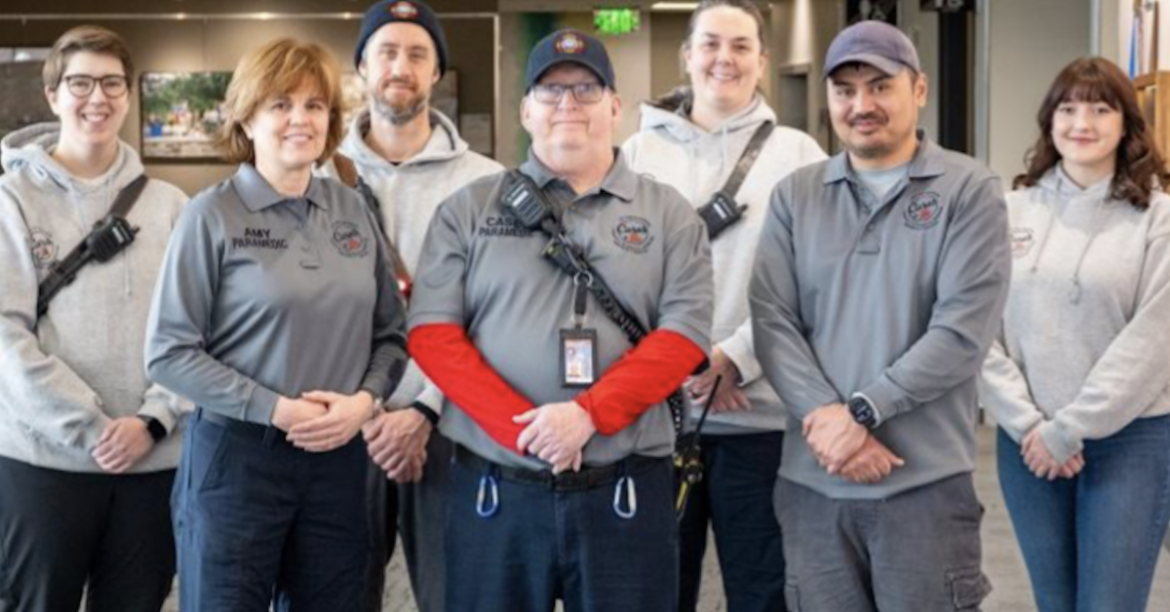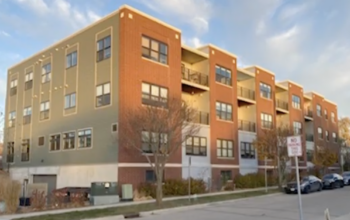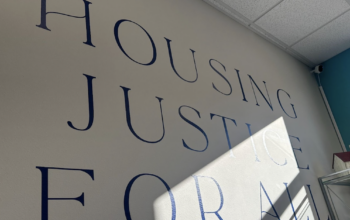Potential cuts to the city of Madison’s budget threatened a successful program that’s aimed at better serving people in crisis.
The Community Alternative Response Emergency Services program (CARES) based in Madison was in a budget tug-of-war. The city of Madison faced a $22 million deficit in its budget over the next year, which meant the city would have had to slash the program.
The CARES program, modeled after programs in Denver and Eugene, Oregon, exists as an additional tool for 911 operators to use when a mental health emergency occurs in the community.
Its goal is to keep patients out of emergency rooms and jail by providing medical and behavioral health care at the beginning of a mental health crisis, according to the Madison Fire Department.
The teams are trained to respond to nonviolent mental health emergencies that are not appropriate for a police response alone. They take part in 40 hours of crisis intervention training through the National Alliance on Mental Illness, cultural competency training, de-escalation training, suicide prevention and risk assessment, trauma-informed care and more, according to the Madison Fire Department.
When a patient in need calls 911, the Dane County Public Safety Communications Center screens the problem and determines if a CARES team is appropriate for the situation. If so, a Madison Fire Department paramedic and a Journey Mental Health Center crisis worker respond to the scene together, providing the patient with both medical and mental health support.
The teams also follow up with patients to make sure their needs have been addressed and to connect them with other services they might need.
Madison Mayor Satya Rhodes-Conway’s 2025 executive operating budget included a reduction to CARES’ reach if a city referendum failed, which would have resulted in 5% budget cuts to city departments, including the fire department.
Madison Fire Chief Chris Carbon wrote a letter in July to Satya Rhodes-Conway about how the budget cut would drastically impact fire services and, down the road, intensely limit the CARES program.
“The reduction from three to one CARES team would result in the loss of approximately 66% of the CARES services, including evenings, weekends and holidays,” he said. “It would further reduce the capacity of community paramedic interventions and follow-ups presently completed in-between CARES shifts.”
Fortunately for CARES and the city, the referendum passed by more than 20,000 votes. Fifty-seven percent of Madison residents said yes, while 43% of residents said no. The downside: increased taxes.
The referendum allows Madison to exceed its tax levy limit, set at 2.97% by the state legislature in 2011. The city argued that due to rising costs, increased services and inflation, this tax levy, which would result in a levy of more than $296 million, should be increased. Voters agreed and raised the percent the city can levy by 7.4%, allowing a new levy of more than $318 million. The passed referendum will also add $22 million yearly to the levy, which is the current deficit for city operations in 2025 the referendum was aimed at solving.
At the same time as the budgetary shifts, CARES is slated to expand into the neighboring city of Sun Prairie. In September, the Madison Common Council unanimously approved an agreement that would start the expansion process. This is part of an Emergency Crisis Services Agreement between the communities that says Sun Prairie can use the CARES program and pay Madison $531 per response.
If Madison’s referendum failed, it would have put stress on CARES’ potentially increasingly limited resources. The referendum passed, but the Madison Fire Department is keeping a close eye on the strain expansion to Sun Prairie might cause.
Madison Fire Department’s Assistant Fire Chief of Medical Operations Chris Hammes says that there are times when the CARES program, as it stands, already cannot address the needs of Madison on its own. He calls the expansion to Sun Prairie a pilot project.
“We’ll evaluate the numbers and look at how many times requests come in that we’re not able to fill,” Hammes said.
If results are favorable and the CARES teams are able to meet the increased demand, the Madison Fire Department will budget and staff accordingly to be able to move forward with potential further expansion into Madison’s surrounding areas, he said.
“It truly has been a very successful program, and it has great benefits to not only the community, but the resources we have in our community for responding to these calls,” Hammes said.
Jake King, a communications and diversity strategist with Sun Prairie, is excited about the program’s expansion into his community and says the demonstrated need for CARES in Sun Prairie is clear.
“In the first quarter of 2024 alone, fire and EMS responded to 42 incidents involving mental health consumers who could have benefited from CARES support, while police responded to 32 similar incidents,” King said.
King hopes the program’s test expansion into Sun Prairie will go smoothly, as it will ensure that Sun Prairie residents in crisis get immediate support from trained mental health professionals, offering a personalized, compassionate alternative to relying solely on traditional emergency services, he said.
Sarah Henrickson manages the CARES team members from Journey Mental Health. She’s been a crisis worker with the organization for more than 24 years.
“I really love crisis work,” she said. “I love responding to people when they’re in their darkest moment. I love trying to bring some kind of order to the chaos and bring some hope to people who maybe don’t feel like they have any at that time.”
Henrickson hopes that CARES and programs like it can spread far beyond Madison and Sun Prairie to eventually be seen nationwide as the fourth branch of emergency response.
“You send police when there’s a crime or a public safety issue, you send fire when there’s a fire, you send EMS when there’s a medical emergency, and you send a program like CARES when there’s a behavioral health concern that doesn’t require any of those other resources,” Henrickson said.
As CARES prepares for its next chapter, both Madison and Sun Prairie residents stand to benefit from a mental health response model that prioritizes compassion and a brighter outlook for both communities’ well-being, Henrickson said.






